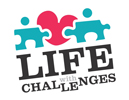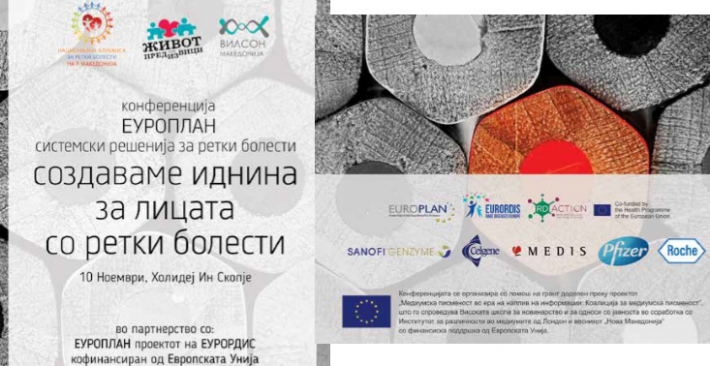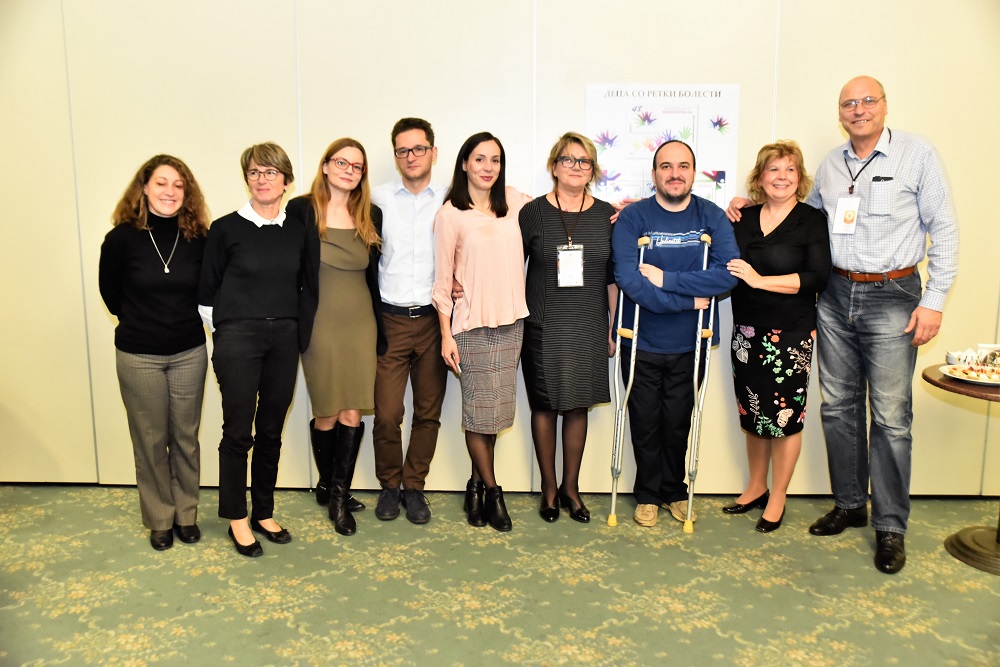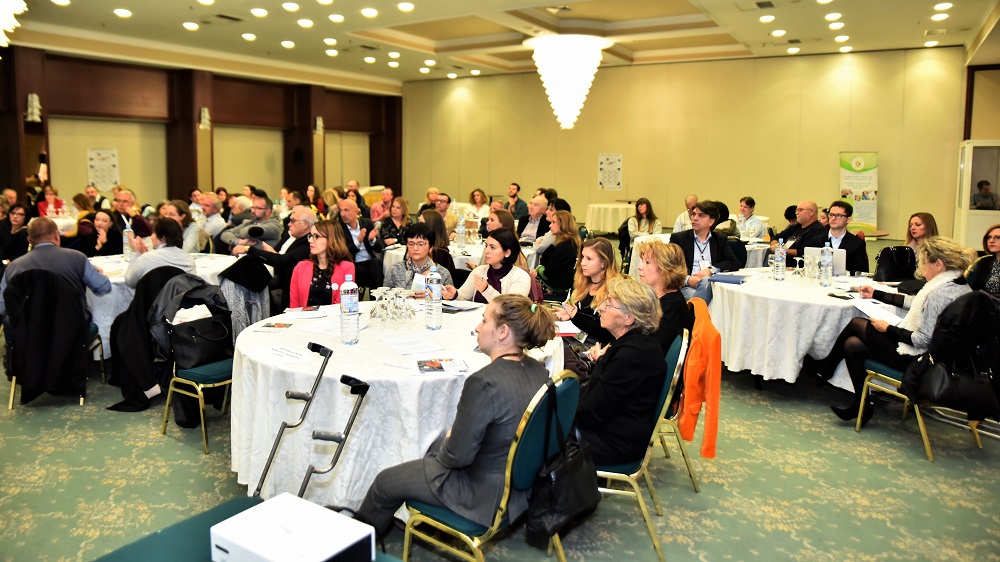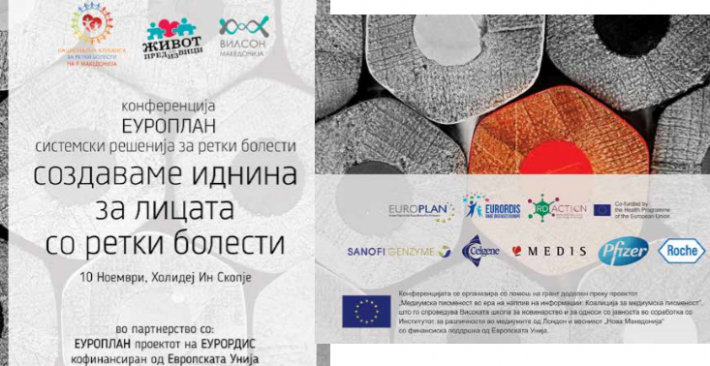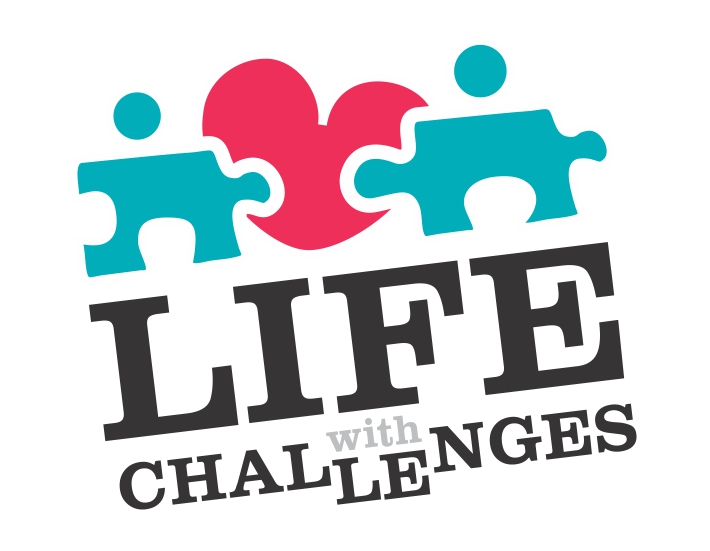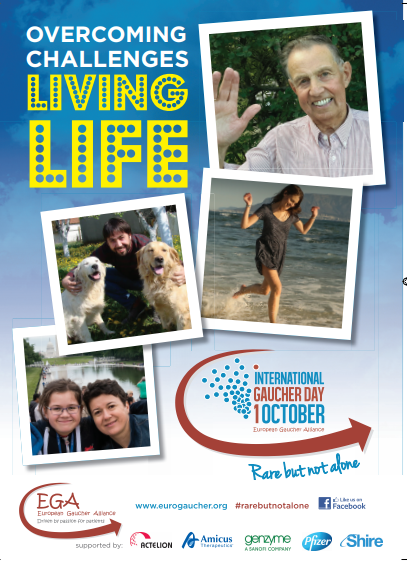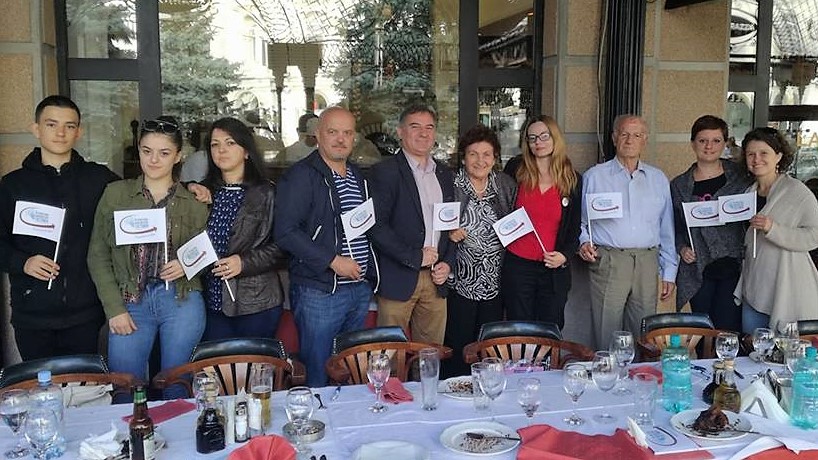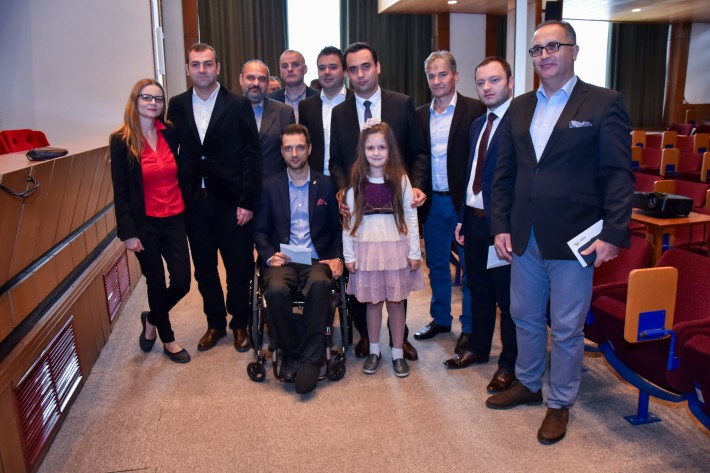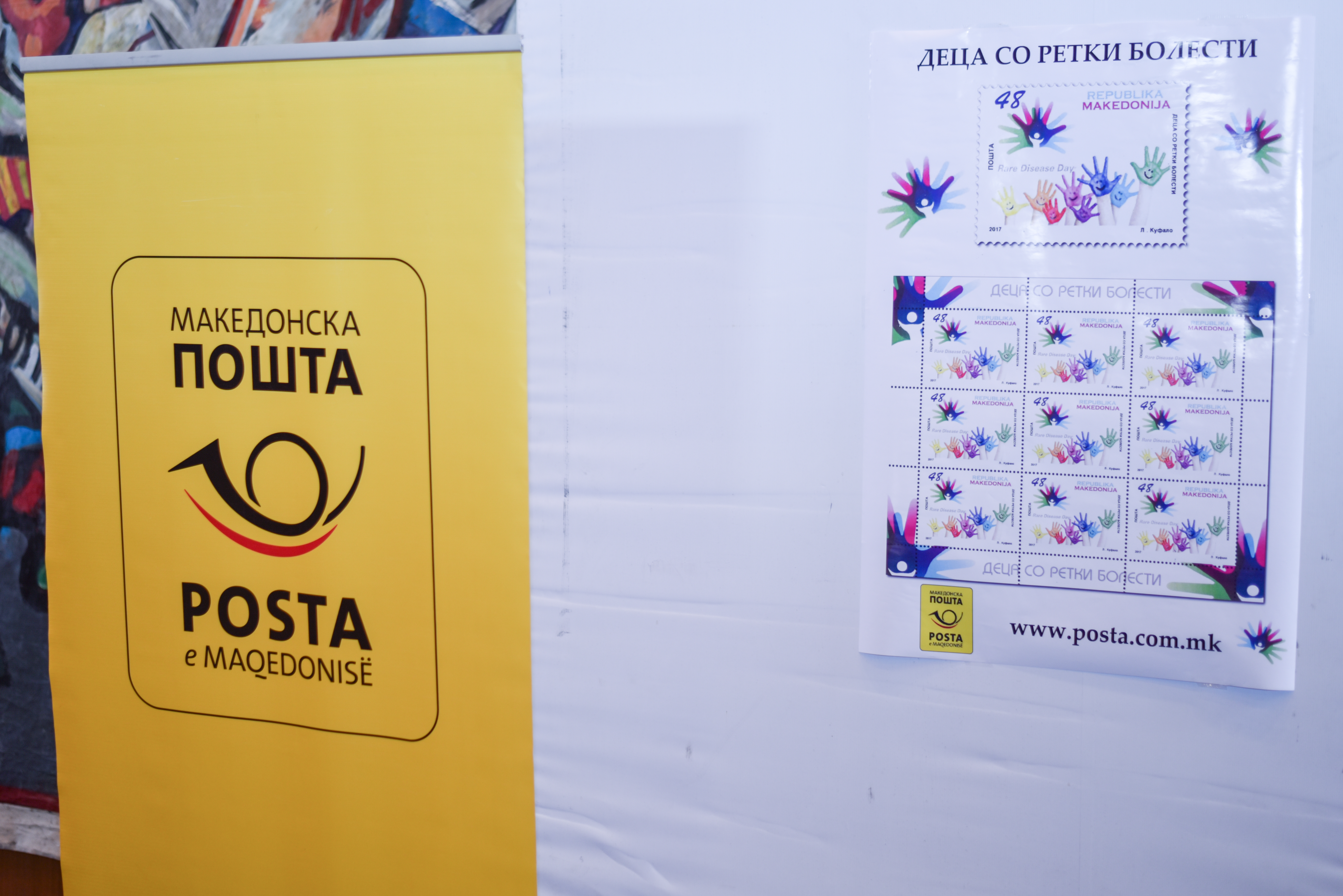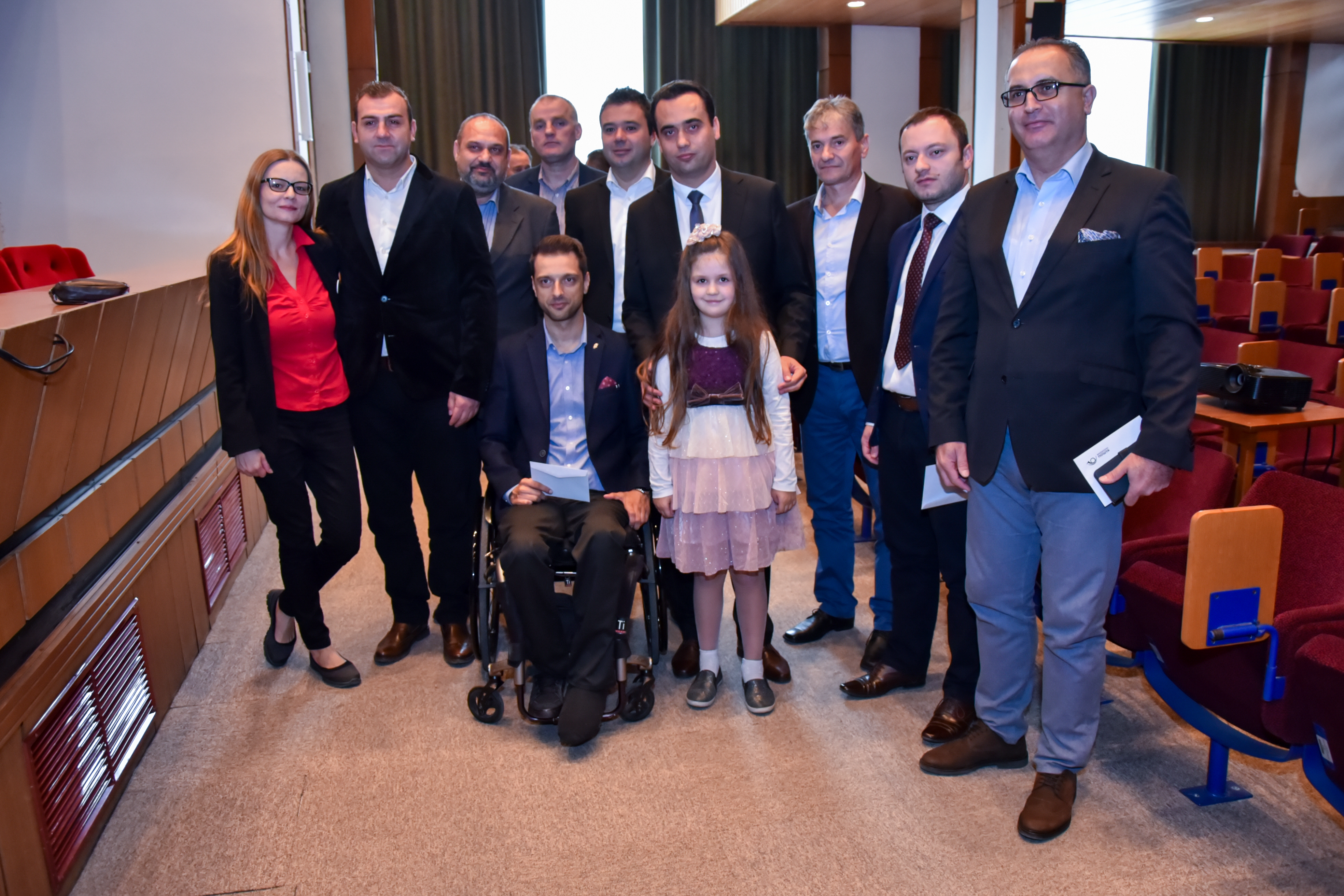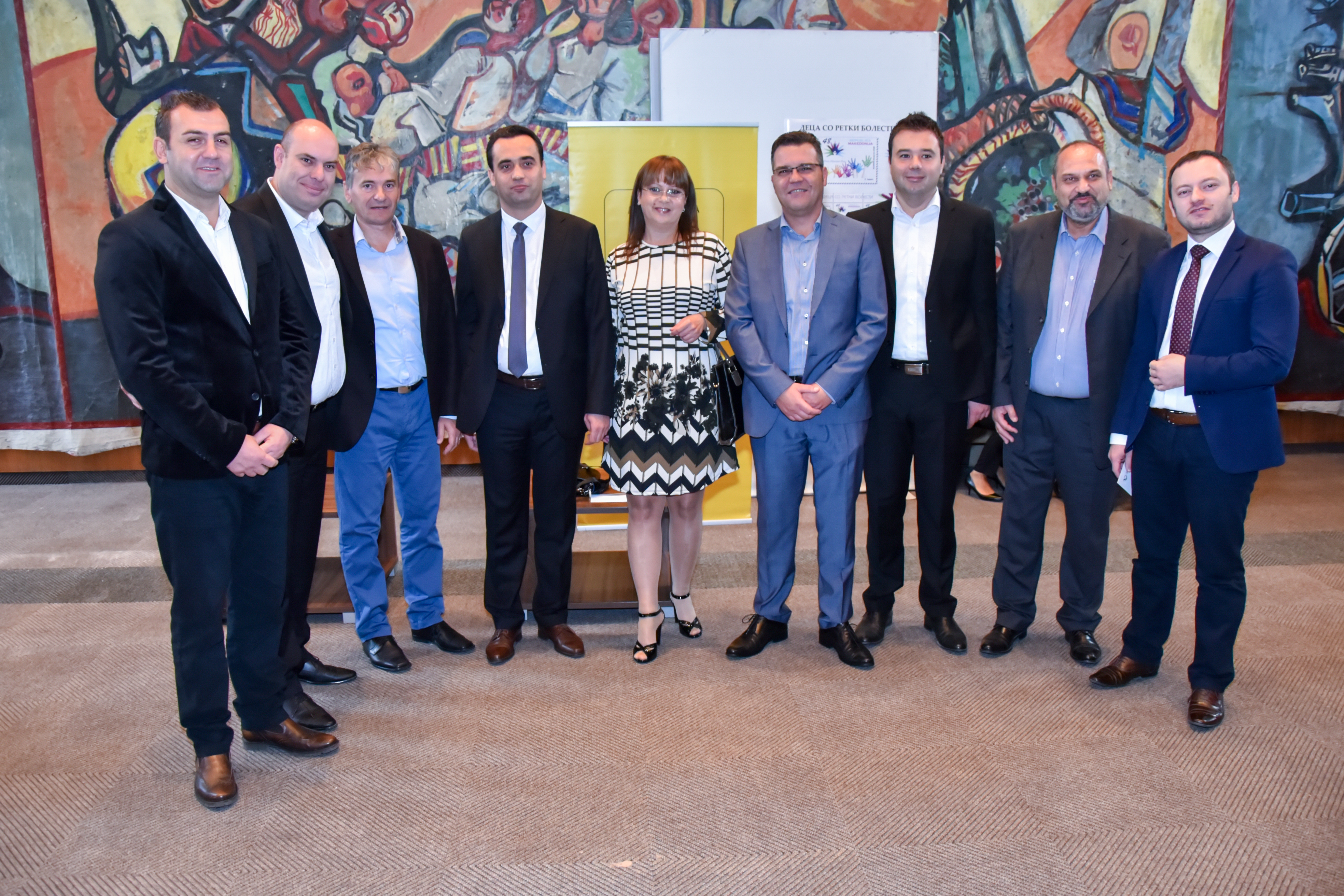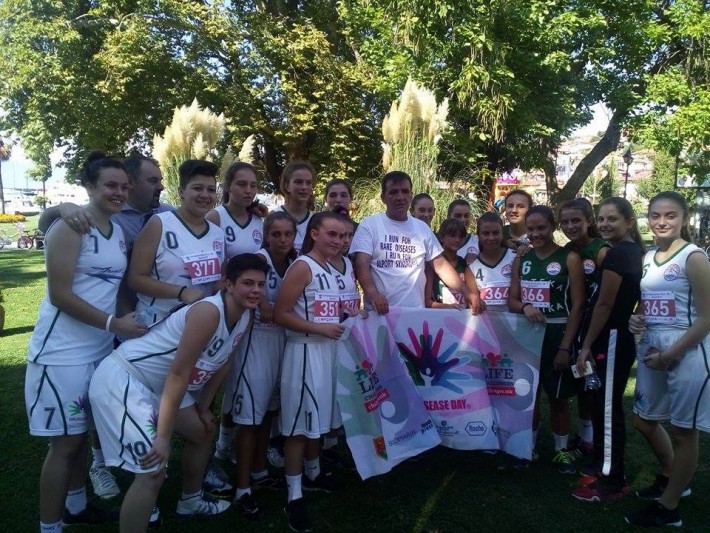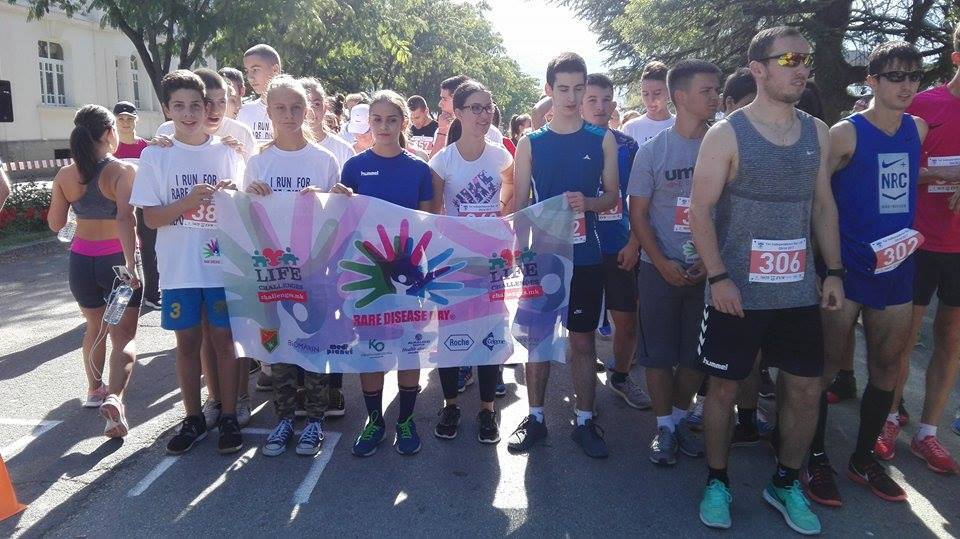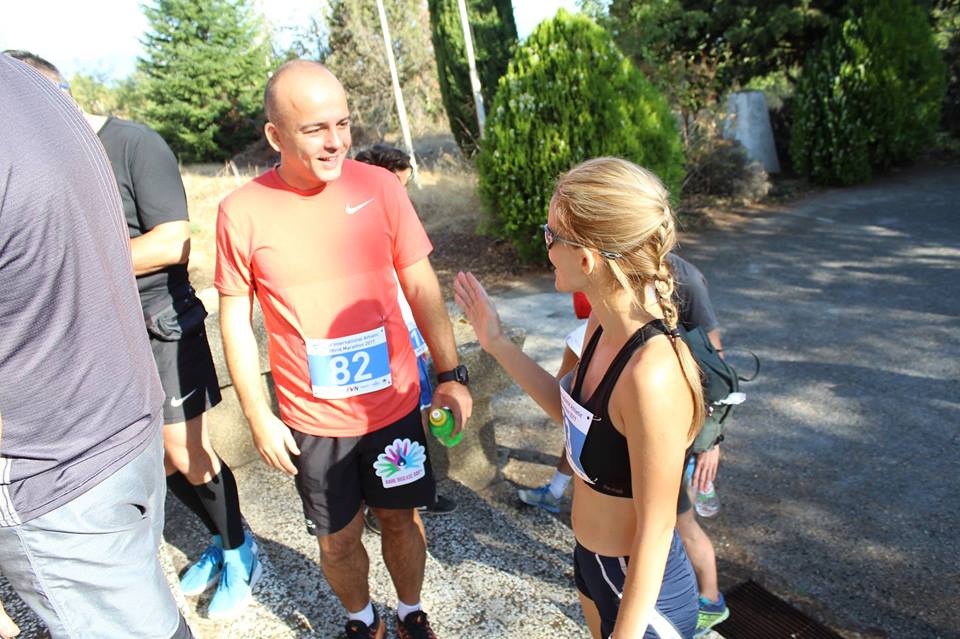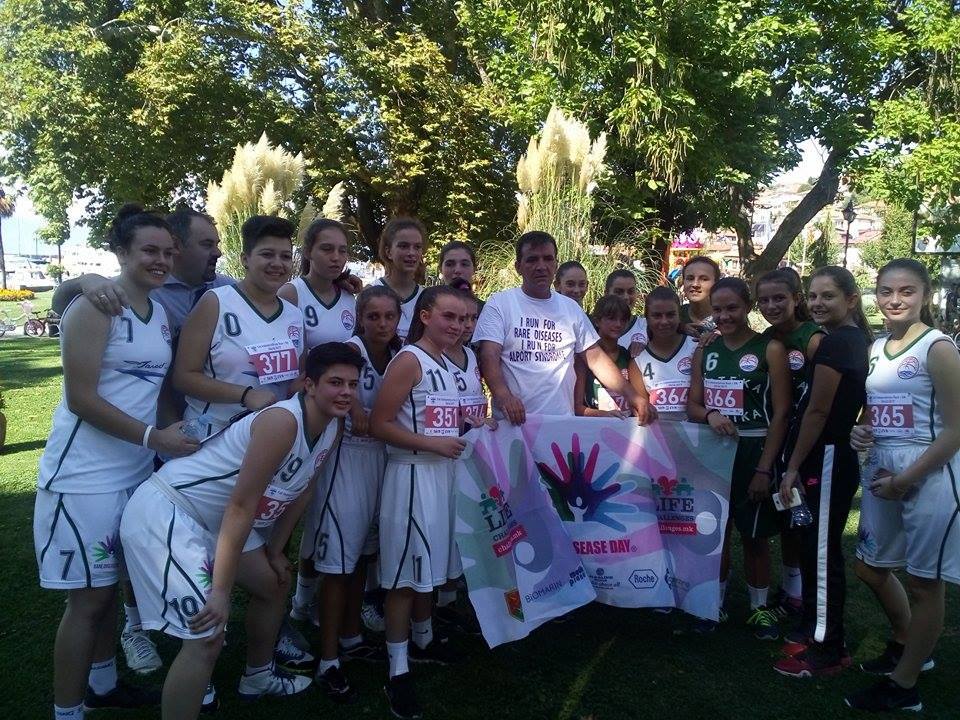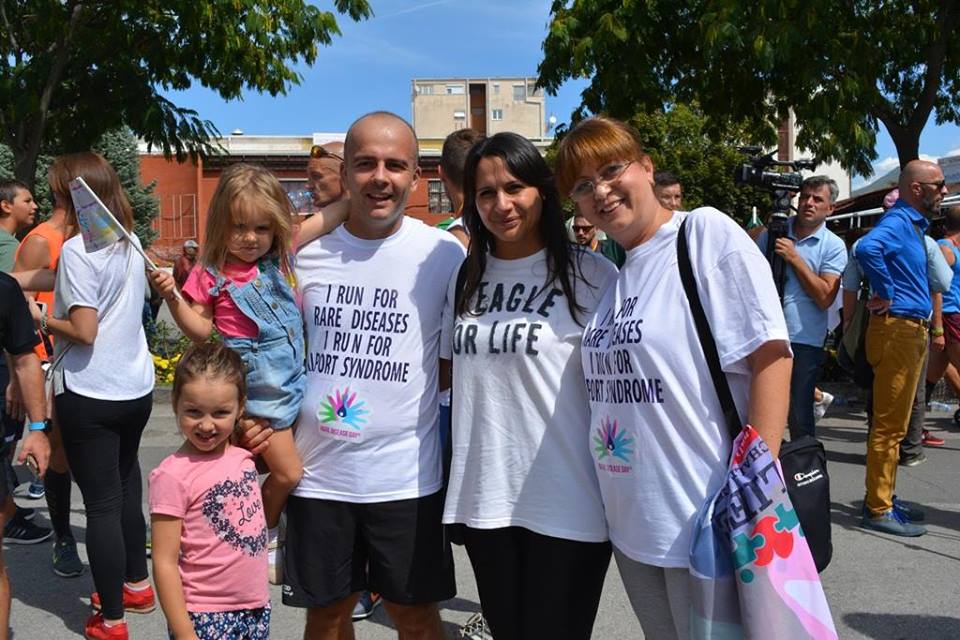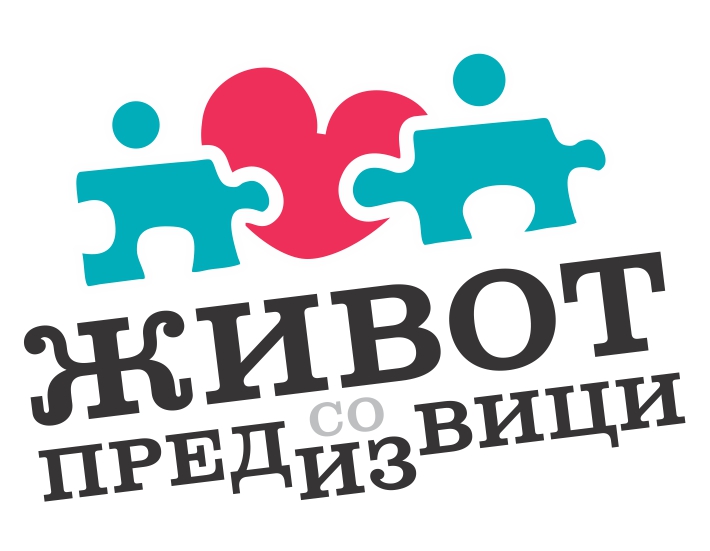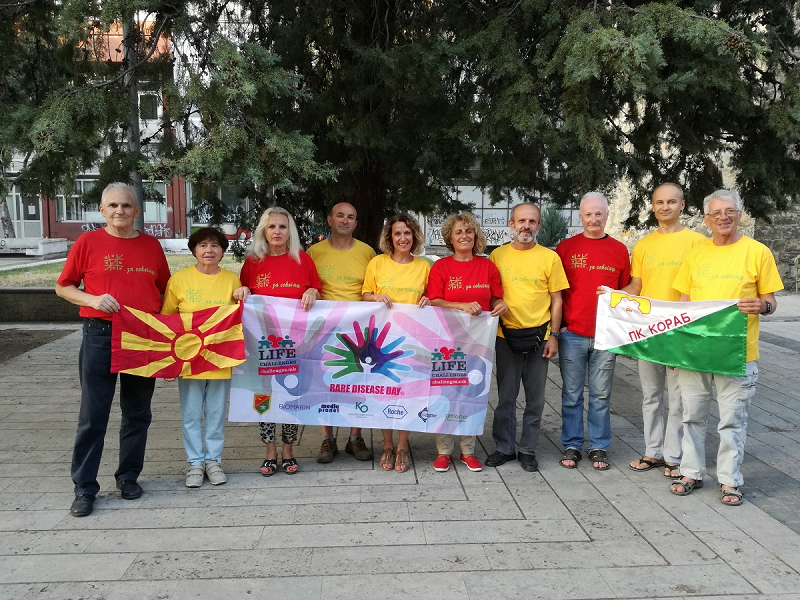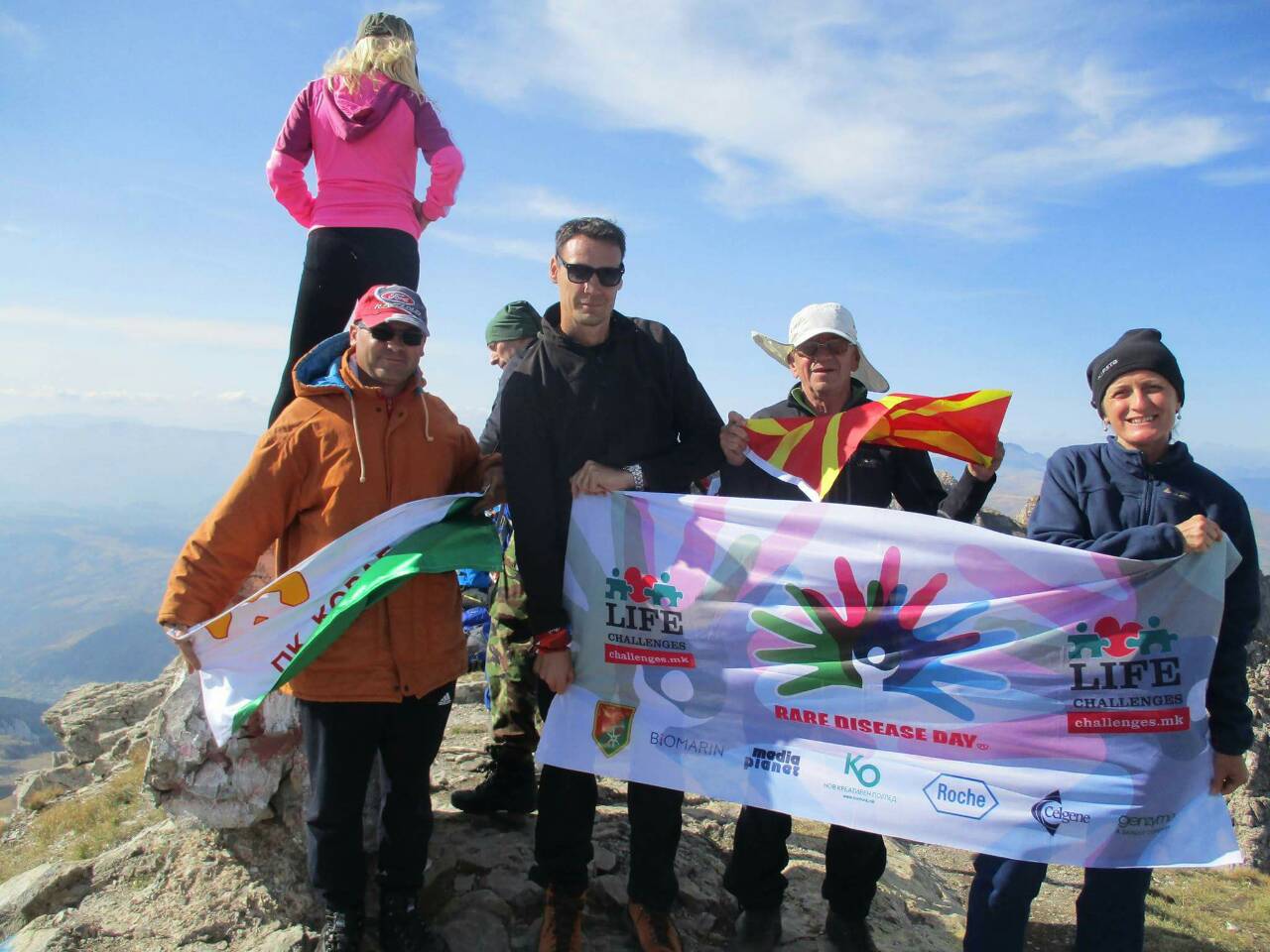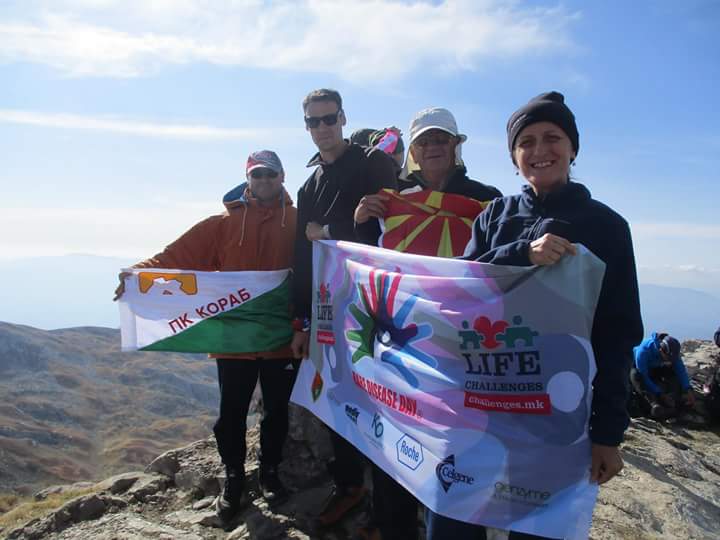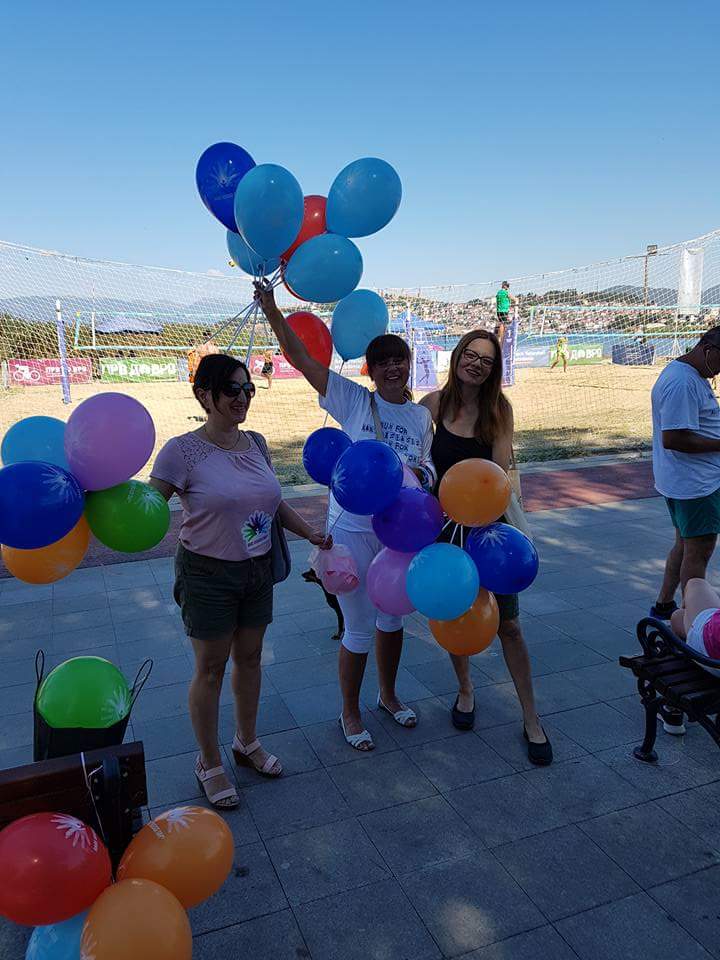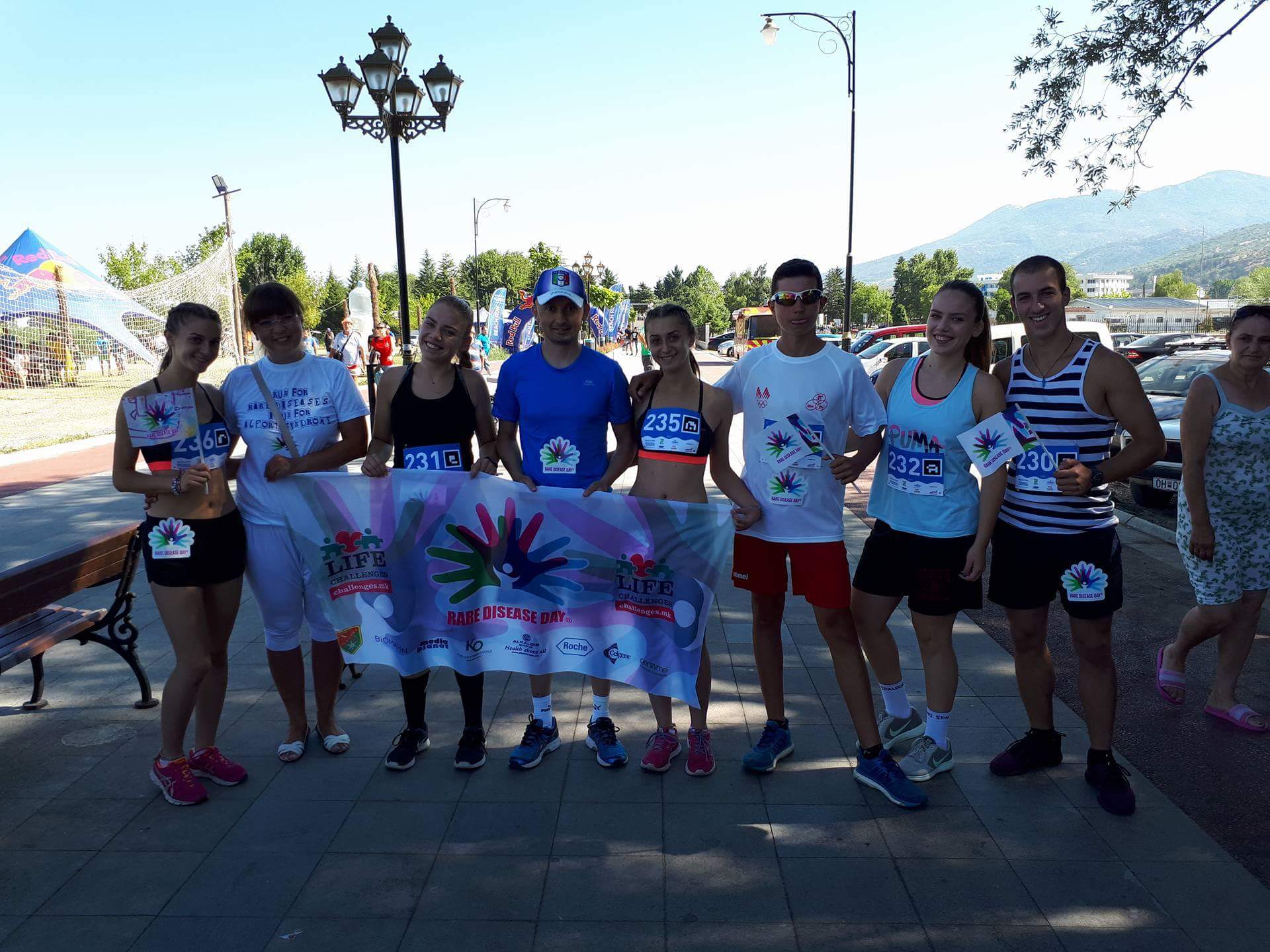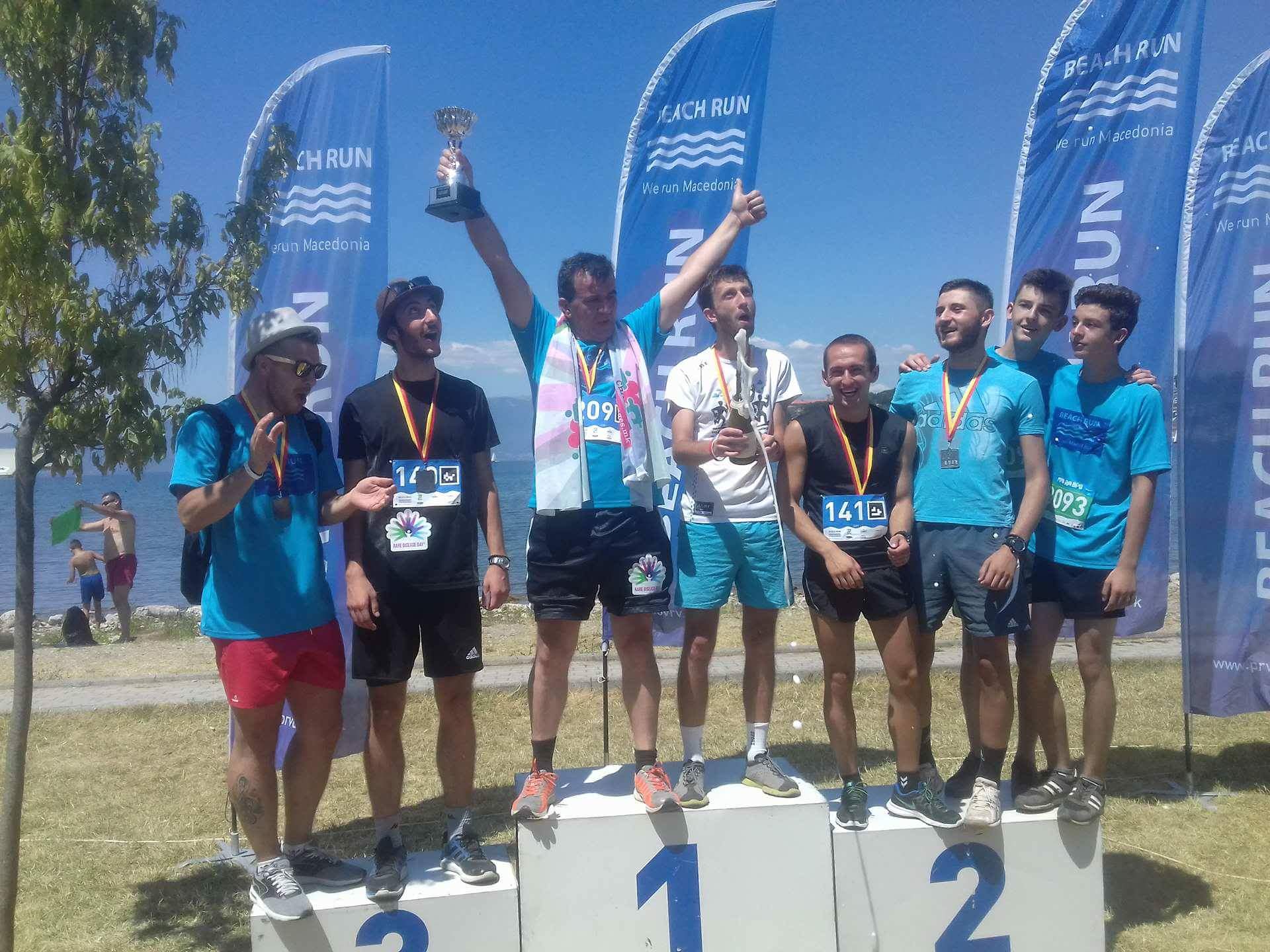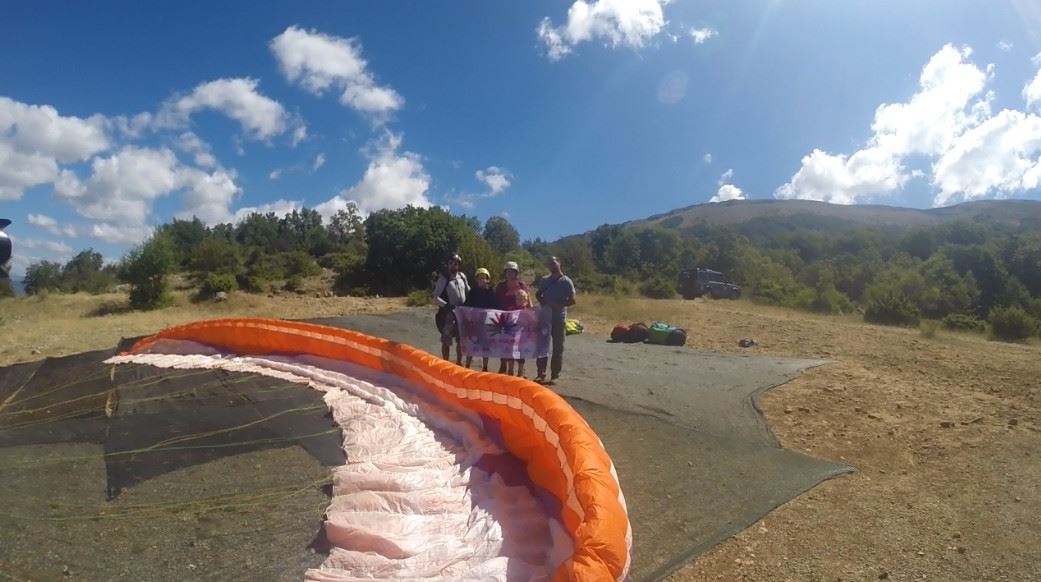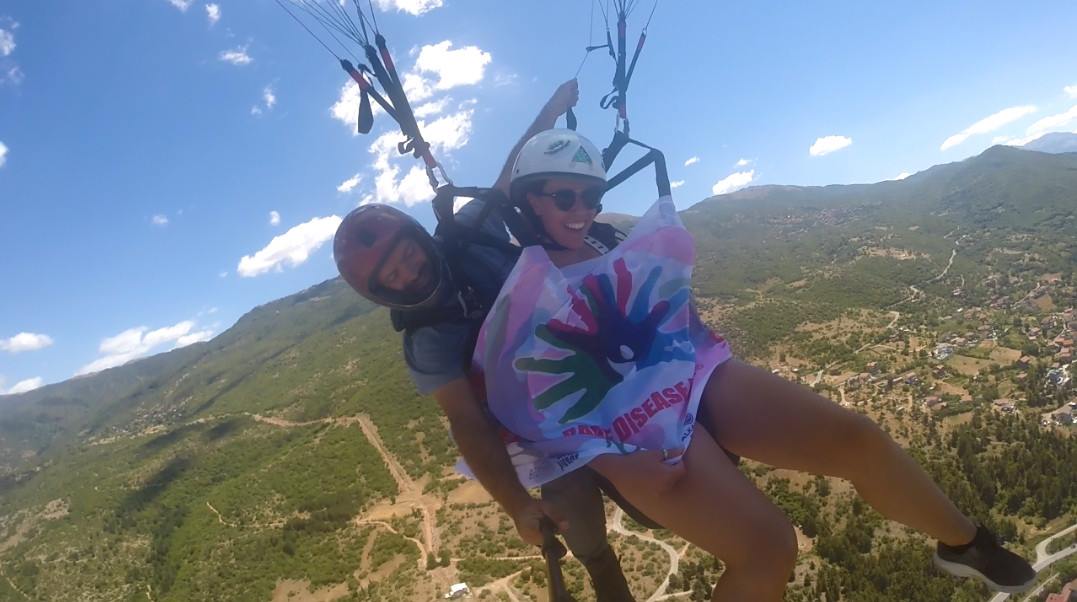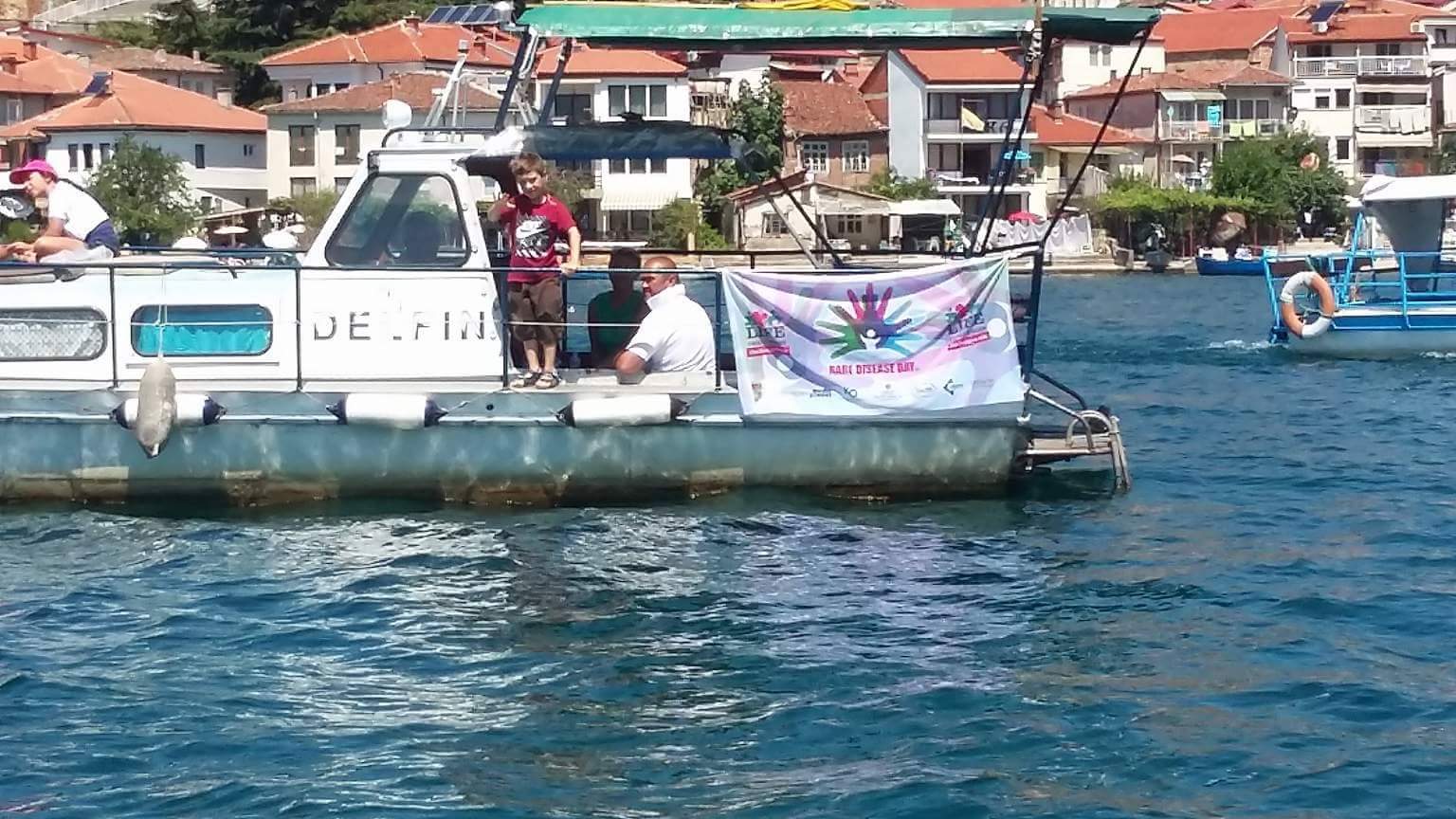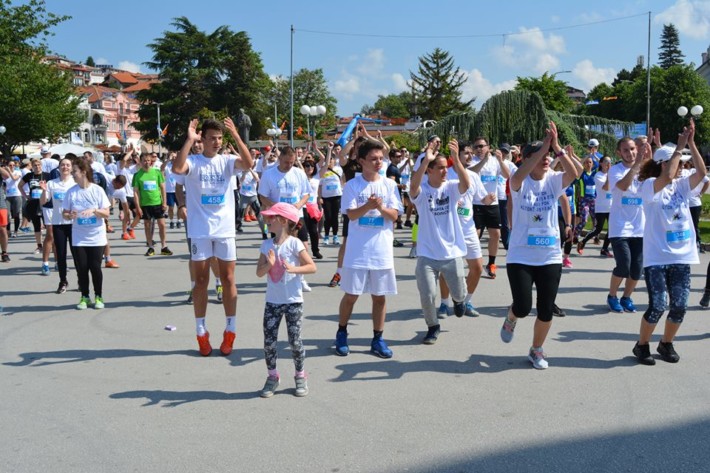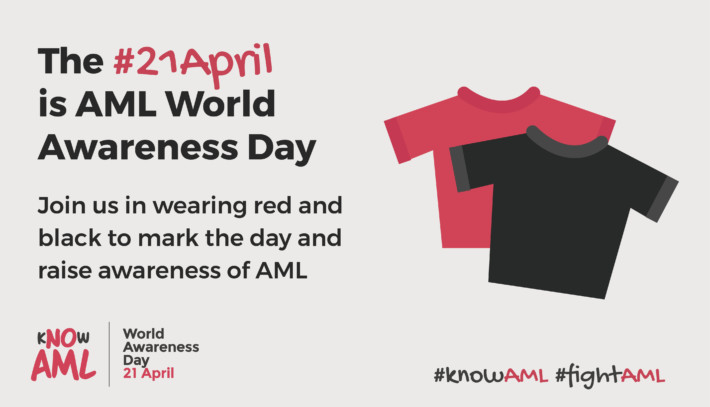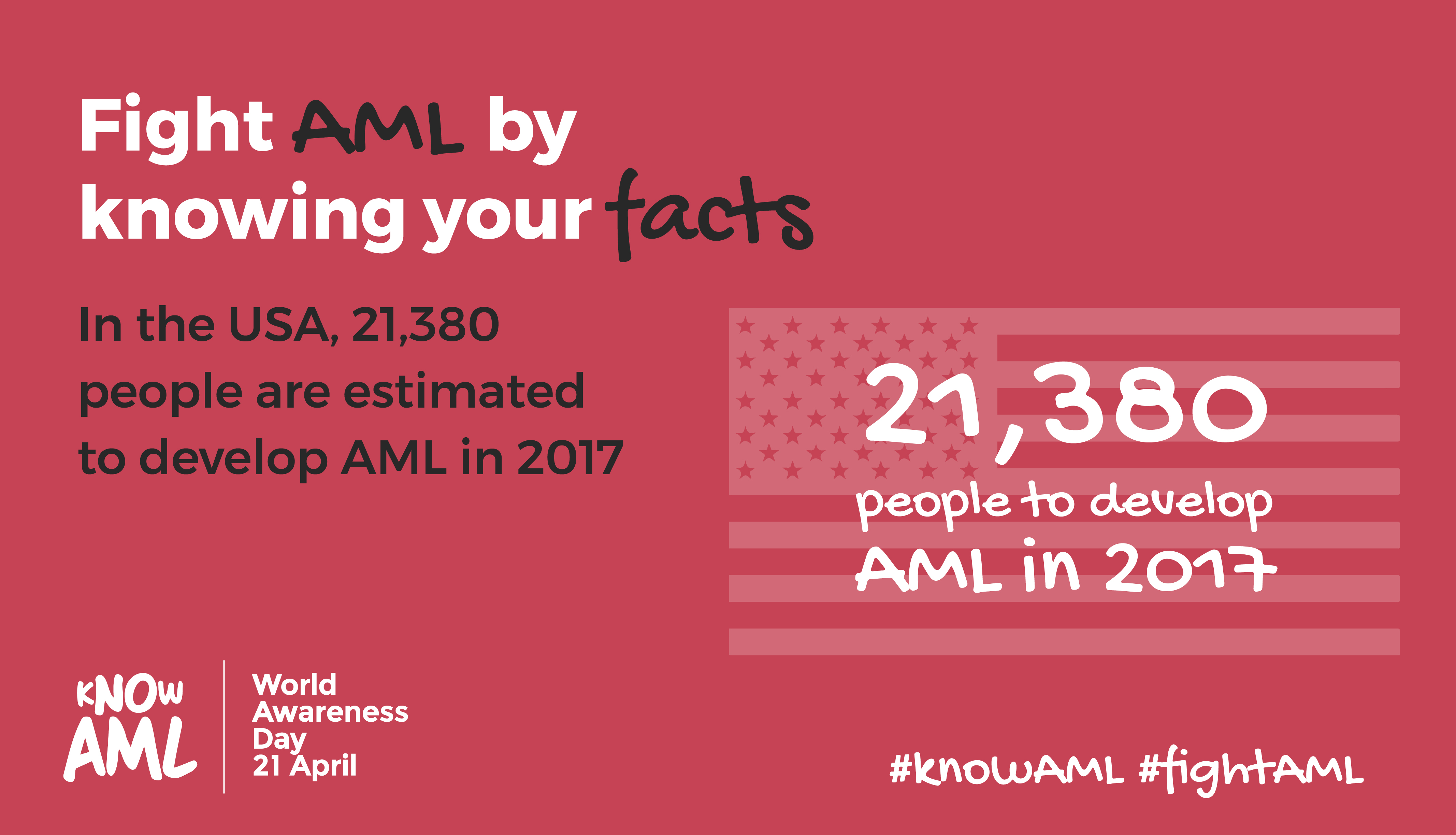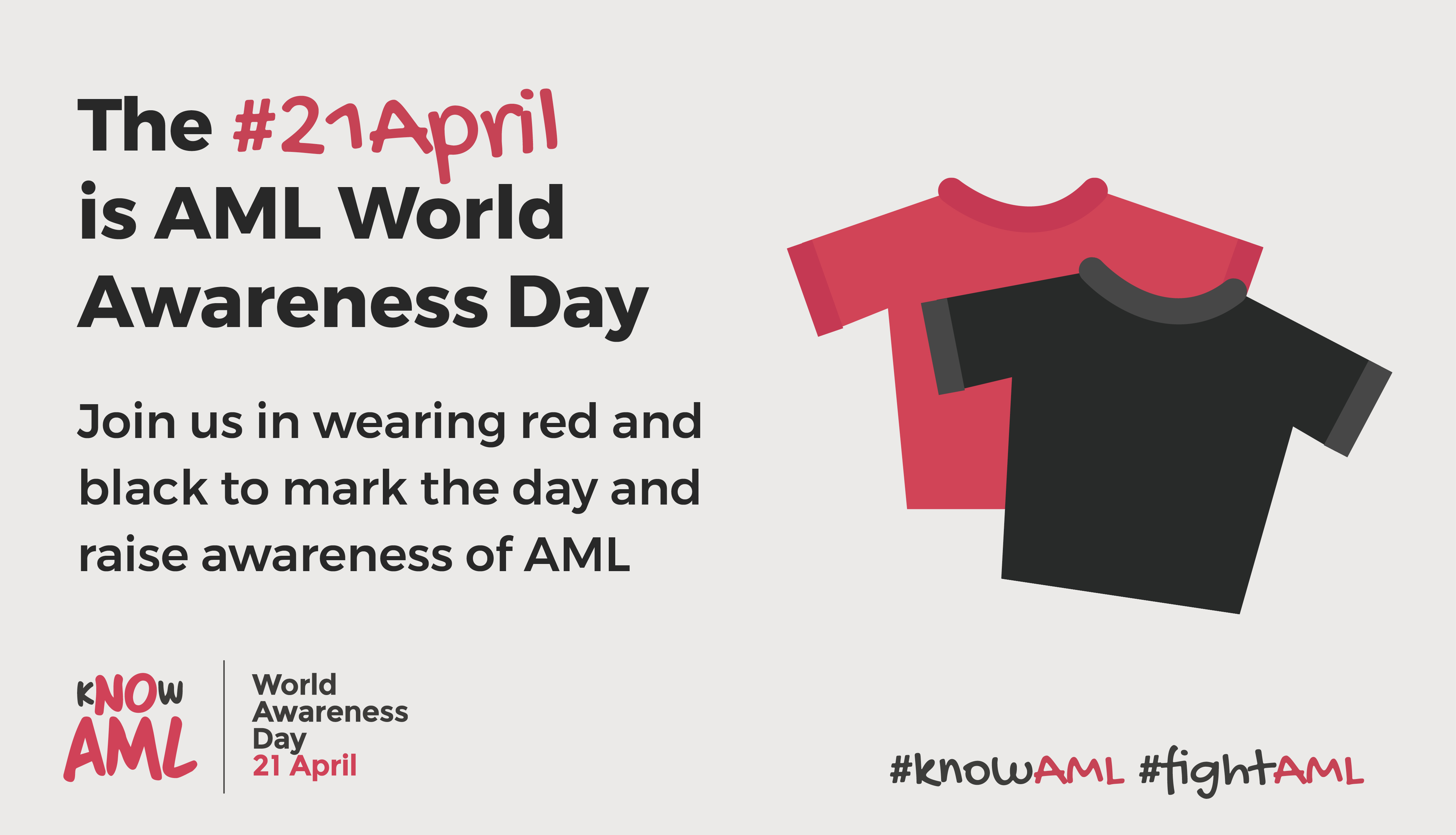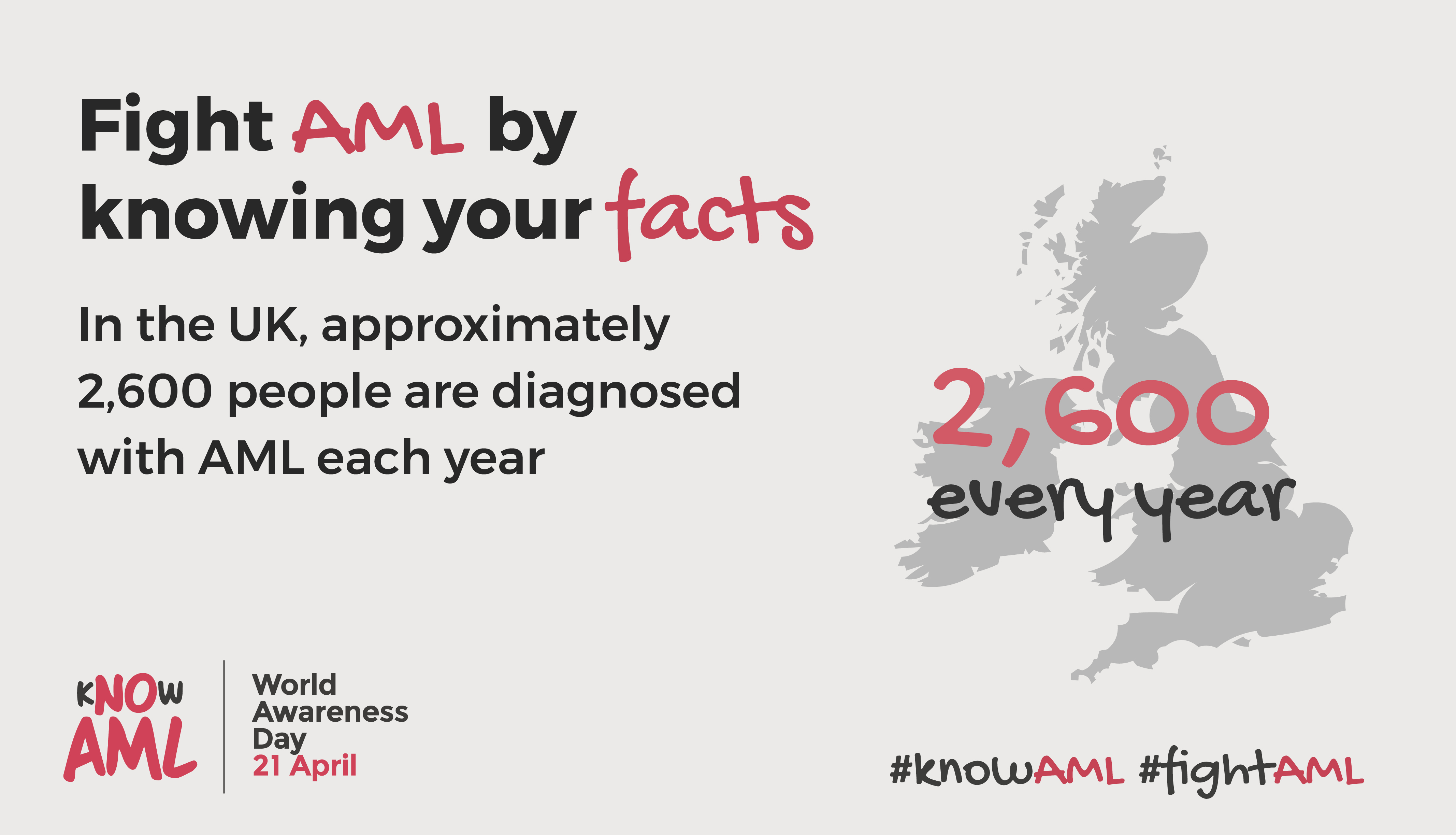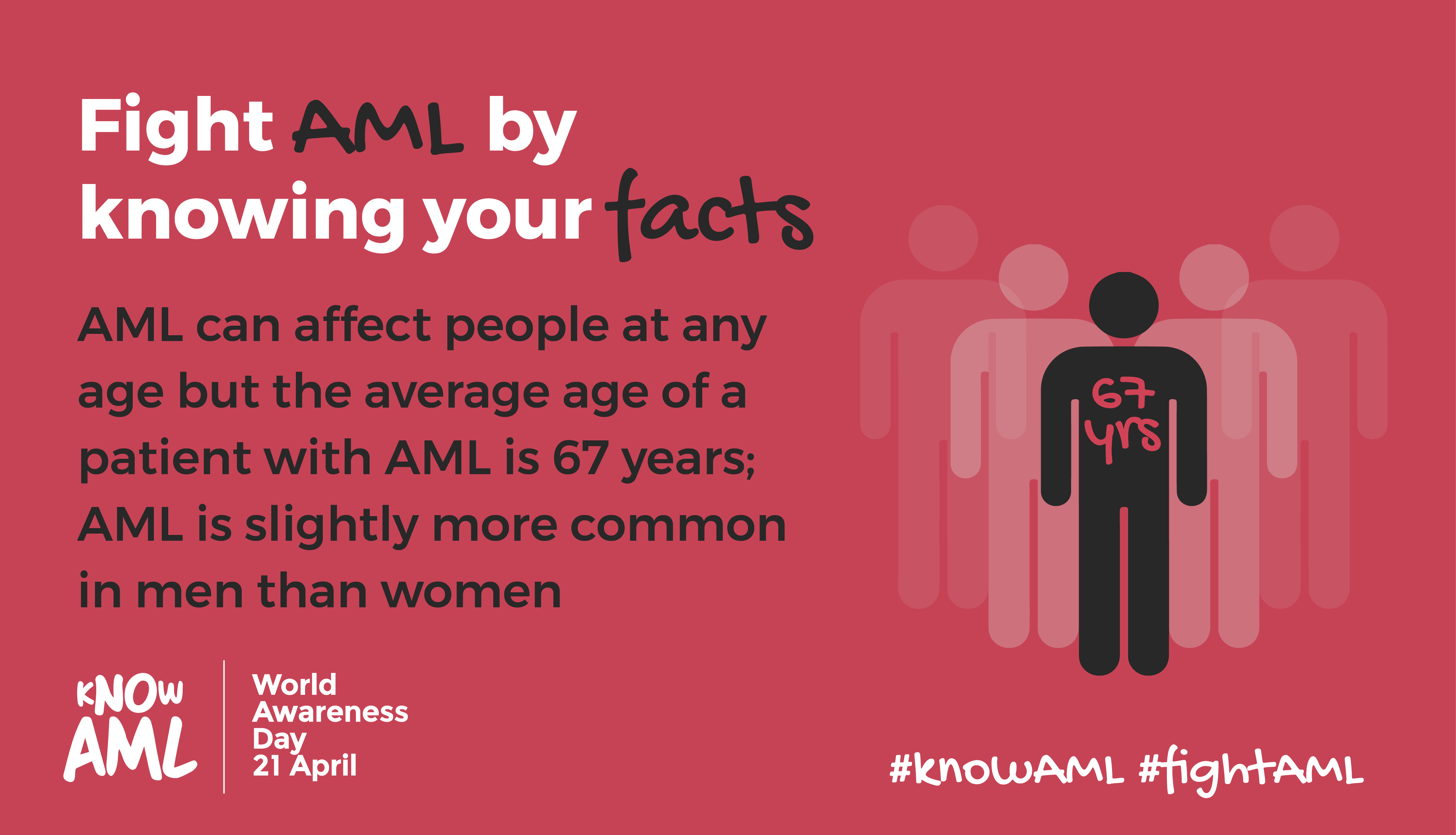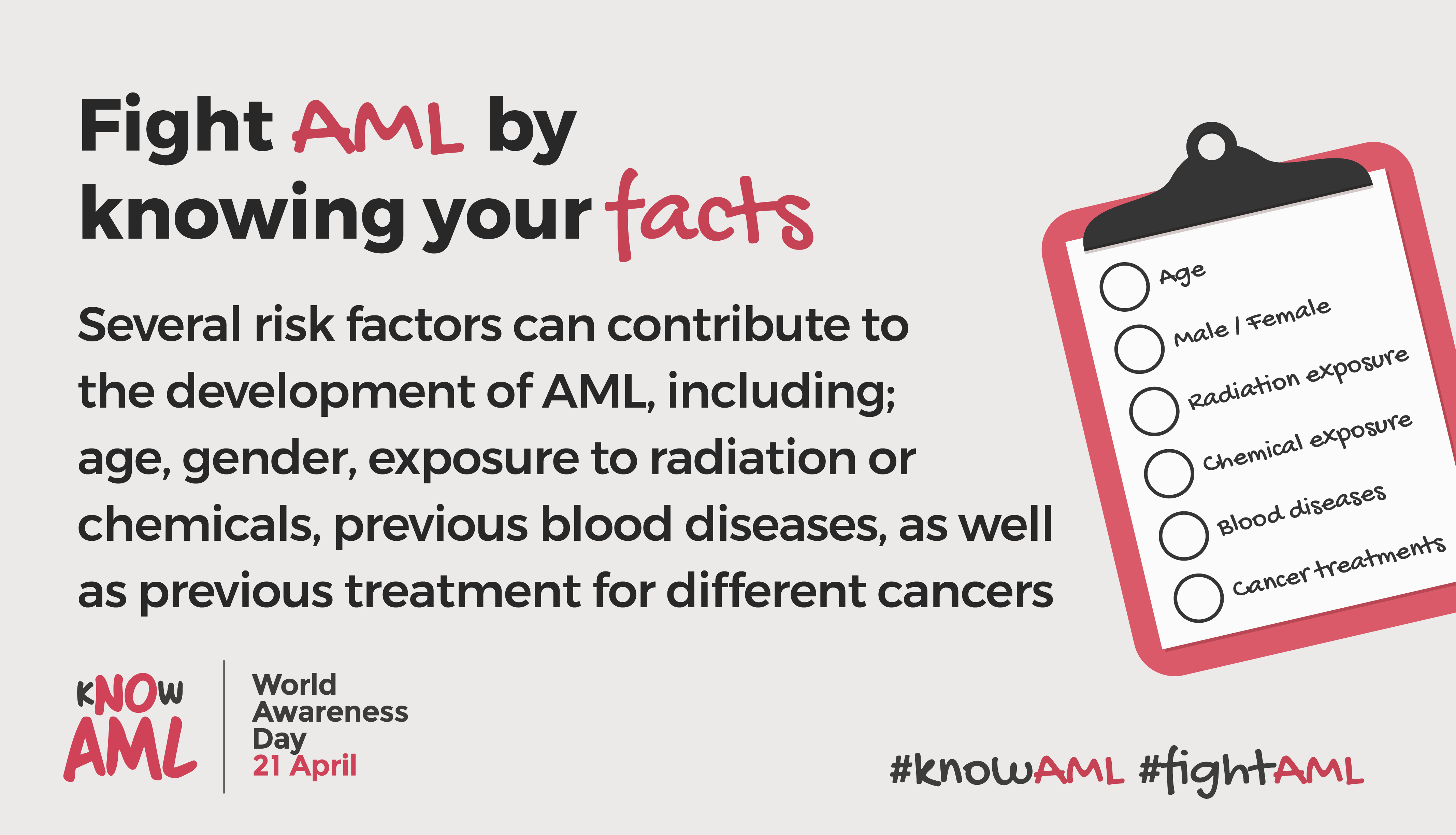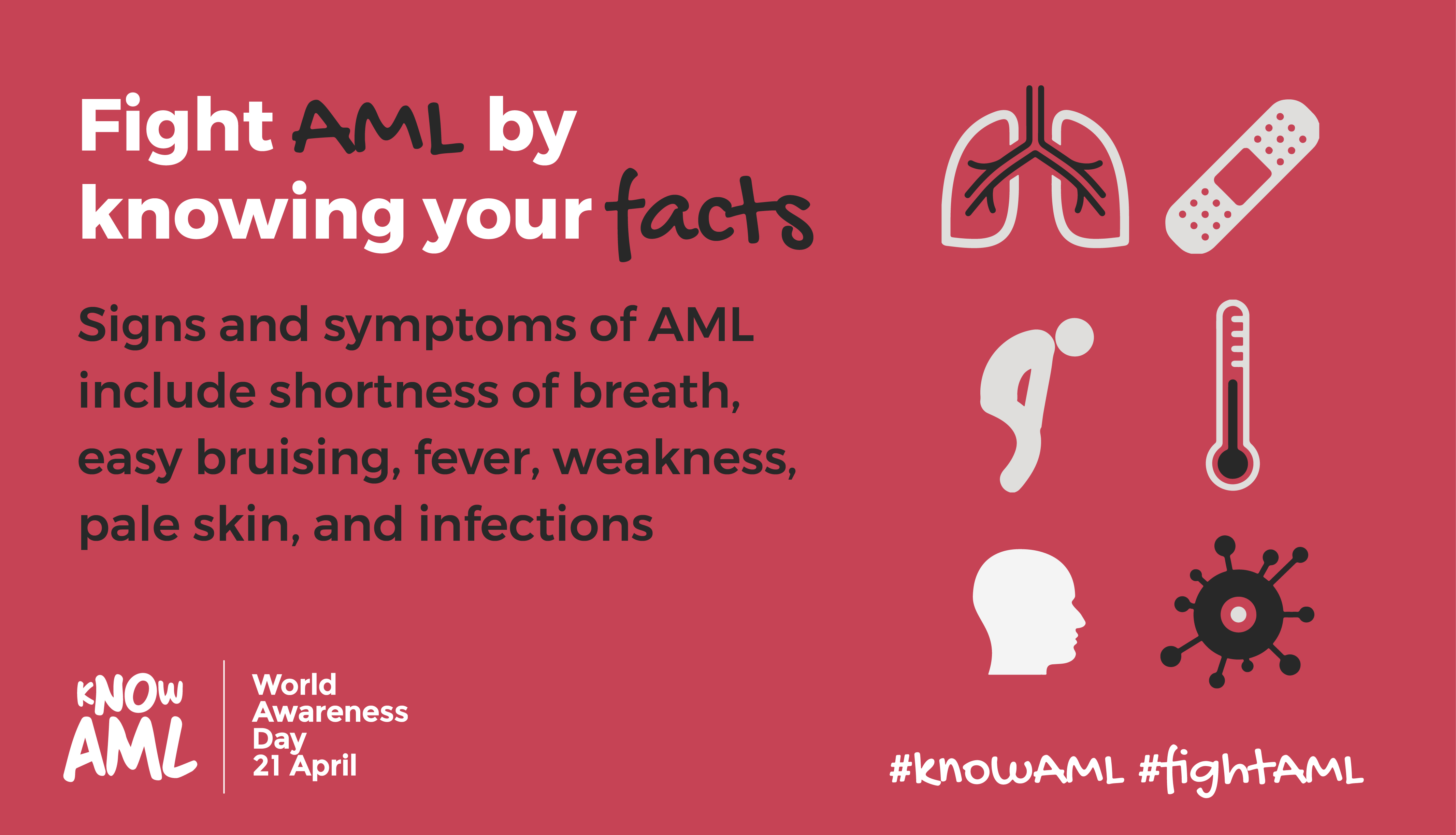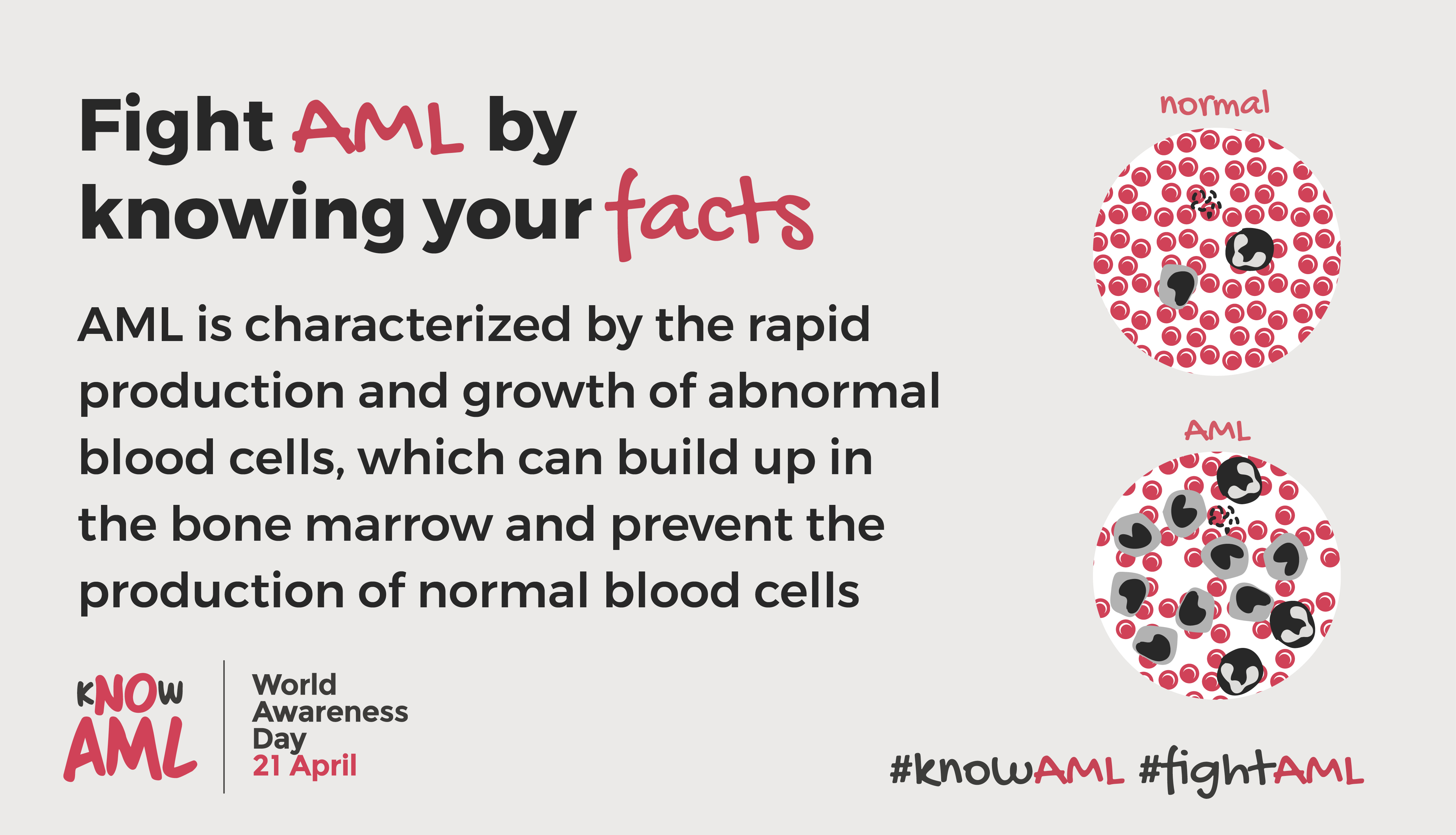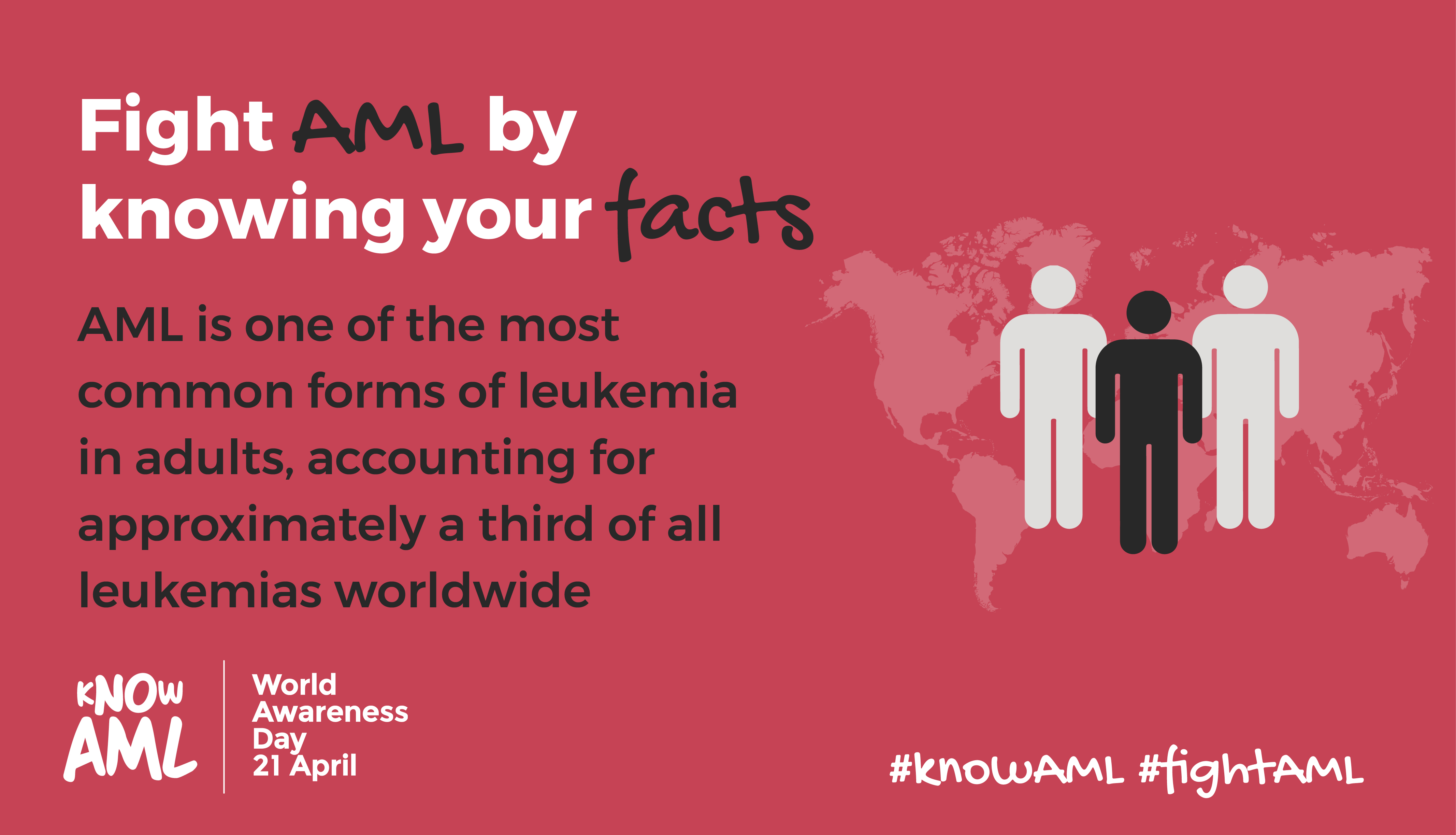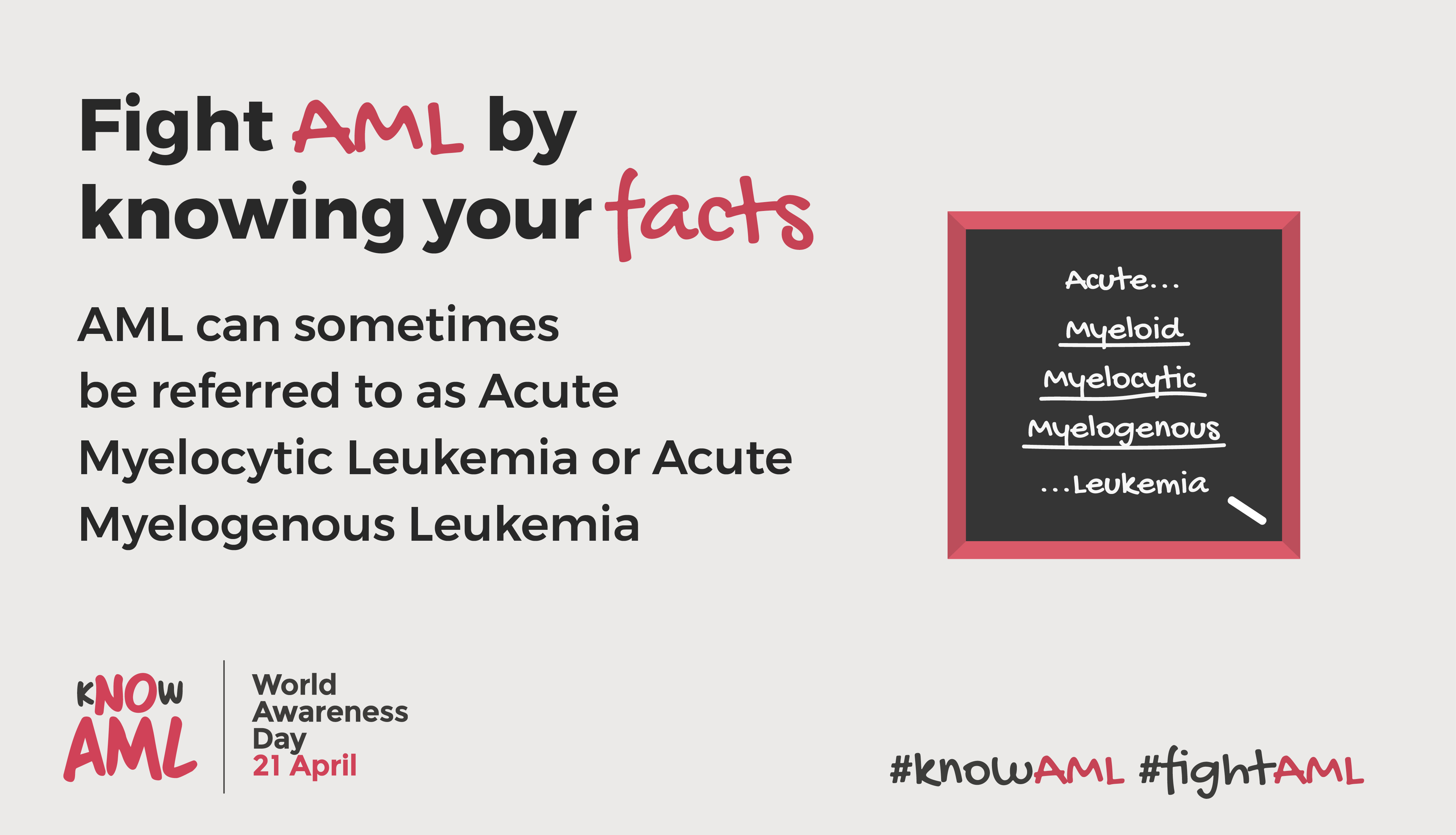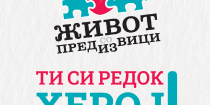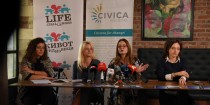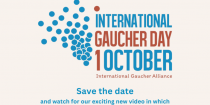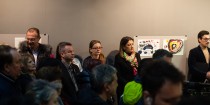The first EUROPLAN conference in Macedonia on the topic of rare diseases was held on the 10th November 2017 from 10:00 am to 2:30 pm in the hotel Holiday Inn in Skopje. Experiences and examples from the area of the rare diseases from Europe and the region were shared at the conference, as drive towards discussions and identification of possibilities for the improvement of the situation in Macedonia. Through discussions this conference works toward the possible solutions to provision of secure future and good-quality life for the patients and families facing a rare disease in our country.
For the first time at such a conference were present the institutions ( Health-care committee, Government of RM, Ministry of Finance, Ministry of Health, Ministry of Labour and Social Policy, Health Insurance Fund of R. Macedonia, The Macedonian Academy of Sciences and Arts, Agency for Medicines), health-care workers (Committee for rare diseases , University Children’s Clinic, University Clinical Centre Skopje) representatives of pharmaceutical companies , representatives from associations form Macedonia and the region and EU, patients and parents facing a rare disease.
Brochure in Macedonian: Еуроплан
Statement by Rebeka Jankovska- Risteski, President of the National Alliance for Rare Diseases of R. Macedonia: In 2015 as a result of our loud endeavours, the wider community became aware of our sufferings and problems- the difficult diagnostic for rare diseases in Macedonia, the unavailability of medicines for treatment, and even more the price of treatment. A dedicated team of people some of which, to my great pleasure, I see here today and that causes a sense of debt towards them and my entire respect, have taken up the challenge to establish and to give life to the Rare Disease Programme. The Programme has encompassed several medicines, namely 29 medicines for 18 diagnoses, for which we as a non-governmental sector suggested, and the professional health-care workers decided that they should inevitably be covered in the regular treatment for rare diseases.
The problems are many and we often reacted to the responsible ministries for changes in the laws, bylaws, rulebooks … Many things are necessary, such as defining the notion of a rare disease, with this many patients will become visible and recognized as a special category of people for whom a special treatment and therapy is needed; defining proper procedure for timely procurement of medicines, a centre for rare diseases, even a virtual one, which will have a team of its own, responsibilities and a manner of working and, of course, bigger budget for the procurement of medicines and other kinds of medical interventions.
Statement Anja Bosilkova Antovska, Wilson Macedonia: As persons with rare diseases we live in a miserable condition, invisible in front of the law. The treatment of rare diseases is regulated only on the surface. The Programme is a big step forward, but there remains much more to be done. We call upon the system to work regardless of the political situation. Patients must not be left without medicines, as it is still the case, for more than 4 months. Today we are here to talk about solutions not only the problems. We fight for early diagnosis, early treatment, for the availability of social and health care services, for independence and quality of life.
Statement Vesna Aleksovska, President of the Citizen Association for Rare Diseases Life with Challenges: Today we are here to create future for the people with rare diseases. Today, you present here at this conference are here because you work to save human lives, to make the future possible for people with rare diseases. Together I think we can make many people happy, together we can help the families with rare diseases to have better quality of life, to get the independent future they deserve. We have several priorities to discuss today regarding the proposed National Plan for Rare Disease. We don’t want to discuss the problems, we want to discuss solutions, concrete actions that should be undertaken this year, the following year and further on.
Rachella Mizrahi, Committee for Rare Diseases stated that it had been a real challenge to work on the rare disease program. From the beginning we had to discuss for a definition, approach and solutions.
Furthermore she explained the work of the Committee, the creation of the registry, the challenges and the solutions that were reached in the period between 2015 and 2017. For the first time statistical data was presented regarding the number of registered patients, and the road which a patient travels was explained, from registration to receiving treatment.
The present guests from the region and EU talked about their experiences regarding dealing with and managing the problems and challenges which rare diseases carry. The focus was on successful stories in terms of regulative and the importance of the existence of a National Plan for rare diseases.
Ariane Winman, EURORDIS talked about the EUROPLAN project in the EU countries: Why are National Plans Important?
Marie-Pierre Bichette from the French Alliance for rare Diseases explained the achievements of the French national plan for rare diseases: Methodology, monitoring and implementation of national plans
Davor Duoboka, National Alliance for Rare Diseases – Serbia presented the advancement regarding rare diseases in the past five years in Serbia.
Sanja Perich, National Alliance for rare diseases – Croatia presented the Help line for patients and families with rare diseases.
Vlasta Zmazek, Debra Croatia addressed the innovations in social care for patients with rare diseases
Vlado Tomov,National Alliance of people with rare diseases, Bulgaria, presented the work of the Centre for Rare Diseases in Bulgaria and the advancement with the national plan for rare diseases.
Borislav Gjurich, Association for rare diseases in Bosnia and Herzegovina presented the advancement regarding rare diseases in the past five years in Bosnia and Herzegovina.
The conference continued with the working groups for priorities regarding rare diseases in Macedonia, namely:
- Legislation about rare diseases in RM
- Committee and Registry for Rare Diseases
- Diagnostics and Treatment (medicines, orthopaedic devices)
- Centre for rare diseases and social services
The conclusions from the conference together with the proposal of the national plan for rare diseases will be delivered to all the relevant institutions in Macedonia in order to find a long-term solution for the challenges with which people with rare diseases and their families face.
Организатори на конференцијата:
Национална Алијанса за Ретки Болести на Р. Македонија
Здружение на граѓани за поддршка на лица со ретка болест ВИЛСОН Македонија
Здружение на граѓани за ретки болести ЖИВОТ СО ПРЕДИЗВИЦИ Битола


